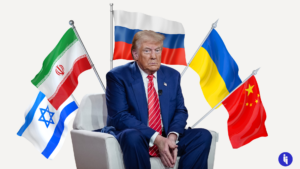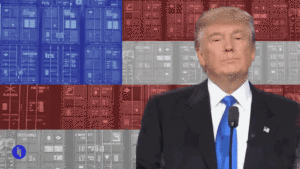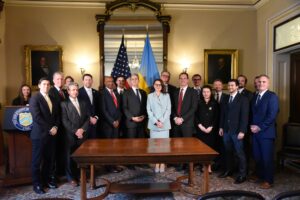It’s not often we get to cover a positive story these days, particularly when it comes to the veritable dumpster fire that is US-China relations.
But yesterday (Wednesday), the White House made an announcement that left us feeling just a little warm and fuzzy – like, 0.000001% warm and 0.000002% fuzzy: China has agreed to subject three key China-made precursor chemicals used in the manufacturing of fentanyl to “additional regulation and control”.
National Security Council spokesperson Sean Savett even called it a “valuable step forward”.
Stay on top of your world from inside your inbox.
Subscribe for free today and receive way much more insights.
Trusted by 127,000+ subscribers
No spam. No noise. Unsubscribe any time.
Fentanyl?
Our US readers will know that fentanyl is a synthetic opioid that’s:
- Ultra-potent (80 to 100 times more-so than morphine) and
- Ultra-low-cost (the folks at Reuters found they could make three million pills – worth $3M – using an internet connection and $3k).
Fentanyl has had a legitimate pain relief role for decades, but its potency and cost have now enabled the drug to wreak havoc across the US, in two ways:
- First in terms of public health, driving 100,000 overdose deaths per year, and
- Second in terms of national security, with organised crime thriving off its ability to supply the US market.
So… the US has long been struggling to stem the flow.
And what’s this got to do with China?
A lot of the finished product used to enter the US from China, until Beijing slapped a wide-ranging ban on the drug and its variants in 2019.
The ban ‘worked’ in slashing the amount of China-made fentanyl smuggled into the US, but organised crime did what it always does: it pivoted. So instead of importing the finished product, it imported the ingredients (precursors).
And most of those precursor chemicals are made in China then shipped to labs in Mexico, where syndicates synthesise them into fentanyl and smuggle them into the US via illicit established channels.
The very nature of fentanyl makes this supply chain hard to stop: the entire annual US supply could reportedly fit in the back of a couple of Ford F-150s.
So… will this new US-China pact work?
We started this piece feeling all warm and fuzzy, but it’s a liiiiittle harder to end it that way. Here’s why:
- Many of fentanyl’s precursor chemicals are legit inputs for perfumes, dyes, rubbers, and insecticides, so an outright ban isn’t viable
- The criminal supply chain can also just tweak the chemical structure of any key restricted substances to evade specific bans, and
- The transnational nature of the supply chain means it’s often a criminal result built on lots of legal steps, making it hard to prosecute.
So you can bet organised crime will again pivot. But honestly? That’s the cat-and-mouse story of tackling organised crime: it’s a path rather than a destination.
And in the meantime, we’ll print out the White House’s US-China announcement and just nuzzle into it, breathing in its musk, all as a reminder that even staunch rivals can – and must – still find a way to work together.
INTRIGUE’S TAKE
Of course, this all begs the question… why did China agree to place restrictions on its own vast and highly-lucrative chemicals industry, to help a rival like the US deal with its own drug problem?
We have a few theories:
First, this was all imposing a reputational cost on China, particularly among US lawmakers who will shape America’s evolving response on issues where China can really feel pain (like China’s access to US markets and tech).
Second, the issue had already evolved beyond just US-China ties in 2022, when a top UN narcotics body added key fentanyl precursors to its list of substances that all members (including China) must now regulate.
And third, we’ve written before about how Xi Jinping has a real incentive to tactically stabilise ties with the US while he seeks to grapple with the growing list of economic (and therefore political) challenges he’s facing back home.
All three above probably played a role in Beijing’s decision to play ball, and all arguably offer insights for anyone hoping to shape China’s choices ahead.
Also worth noting:
- Last year, the Biden Administration added China to the US list of the world’s major drug-producing countries.







